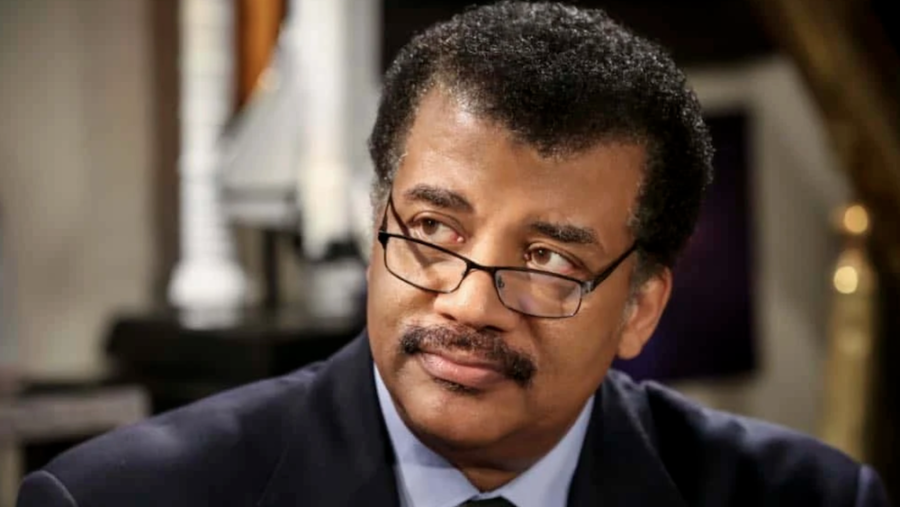Watch Neil DeGrasse Tyson Explain Interstellar’s Ending

One would have an easier time getting a bear to explain why it likes honey than getting director Christopher Nolan to explain the ideas behind his films completely. (All bears are like Winnie the Pooh, correct?) Luckily, his storytelling tends to be imbued with already explainable data, whether it involves wormholes or Wayne Enterprises.
The pop culture-steeped astrophysicist Neil deGrasse Tyson recently shared a science-based explanation behind the ending to Nolan’s big and bulky Interstellar and how it fits into the nature of humanity.
Neil deGrasse Tyson wisely sticks to the science side of things without attempting to put words to the motivations behind Nolan’s characters because those are most definitely only explainable by Nolan and his co-screenwriting brother, Jonathan Nolan.
Also, Neil deGrasse Tyson doesn’t really get into the specifics behind a robot traveling through a black hole or the concept of gravity being a universal form of communication. I think he would just be inviting more criticism than is necessary if he did any of that.
Instead, Neil deGrasse Tyson basically gives people a less bookshelf-friendly explanation behind the four-dimensional tesseract that guides our daily lives and schedules. We live using two horizontal axes and one vertical axis as a way of self-location, and then there’s time as a fourth dimension to lock us in fully.
If we happen to be caught up in this concept from the inside, it appears as if everything happens at once and has always been happening. For instance, this angle means Neil deGrasse Tyson has always been interesting, and raw Brussels sprouts have always been terrible, even though we’ve only experienced the respective interests and terrors from one particular point in time. Or something.
I apologize to anyone hoping Neil deGrasse Tyson or anyone else in the world could justify all the Morse code and “ghost” stuff.
Soon after Interstellar hit theaters, Neil deGrasse Tyson took to Twitter to share his feelings about the film, eschewing explanations for more general examples of praise and bewilderment, saying that no other film has taken on time relativity in such a way.
And that while reading physicist Kip Thorne’s tie-in book, Science of Interstellar, can tell you about the technical stuff, no book out there can explain this story point by point. Shucks.












